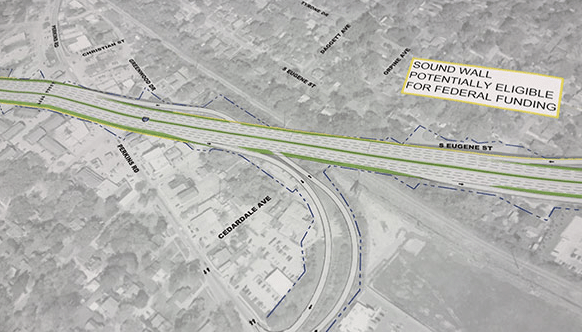
Everyone agrees there's a traffic problem in Baton Rouge, but not everyone is sold on the state's plan to address it.
The Louisiana Department of Transportation and Development's solution, presented this week, is to add two lanes to Interstate 10 through the Southdowns neighborhood. The widening will cost $350 million and require the demolition of a number of homes and businesses. And that doesn't account for widening the bridge over the Mississippi River that the highway feeds into, a project that the DOT is already murmuring about (because the I-10 widening "isn't a cure-all") and which would cost another $800 million.
At the moment, the only proposal on the table is two new highway lanes. What hasn't been discussed, local advocates point out, is how to tackle the problem by reducing traffic on the highway altogether.
"They are not considering any other alternate means of transportation," said Mark Martin, chair of Bike Baton Rouge.
Here are a few questions that no one at DOT has bothered to ask, at least not publicly...
Could a more connected grid of local streets reduce traffic congestion on the highway? Could improved transit service relieve the pressure on I-10? How about adding bike lanes on local streets -- would that help shift some trips from driving? Won't adding freeway lanes simply encourage more people to drive on the freeway during peak hours, pumping more traffic onto local streets as drivers enter and exit I-10, defeating the supposed purpose of the project?
Groups like Bike Walk Louisiana, Bike Baton Rouge, and Baton Rouge Moms Demand Safe Streets want answers. So far, the DOT has been silent.
Speaking to the local CBS affiliate, DOT Secretary Sherri LeBas predicted doom if the widening doesn't occur, citing the agency's forecast of growing traffic levels. Nationally, traffic predictions have been missing the mark for nearly a decade, but that doesn't seem to matter to Louisiana officials.
Louisiana transportation officials are behind other states when it comes to considering policies other than highway widening, said Monique Koll, president of Bike Walk Louisiana. Koll, a veterinarian, was paralyzed when she was struck from behind while riding her bike in Lafayette.
"There’s a lot of bureaucratic inertia going on," she said, "and you have a public that’s not well informed for active transit."
"There’s a chance we’re going to spend a lot of money and not do anything at all for active transportation."





